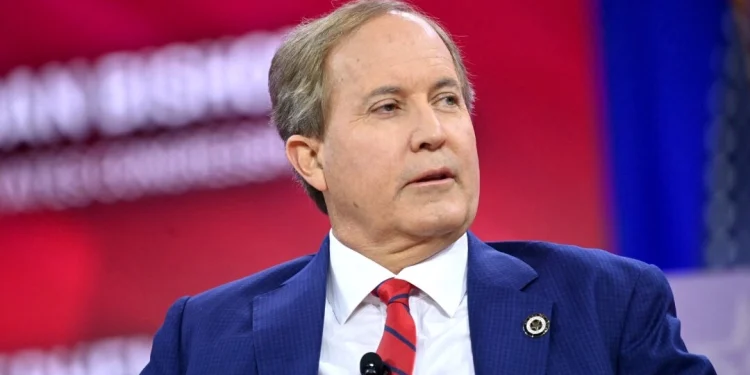The Texas Supreme Court ruled on Nov. 22 that state Attorney General Ken Paxton does not have to testify in a whistleblower lawsuit filed by four former employees accusing him of wrongful terminations in 2020.
The ruling overturned a lower court order requiring Paxton and three of his top aides to testify in the lawsuit, which alleges that the plaintiffs were wrongfully fired after reporting Paxton’s alleged crimes to the FBI.
The plaintiffs include Paxton’s former head of law enforcement, David Maxwell; former head of criminal justice, Mark Penley; former policy director, James Brickman; and former deputy general for legal counsel, Mark Vassar.
“OAG contends those concessions mean there are no remaining disputed issues of fact and, thus, no further discovery is warranted,” it stated. “Alternatively, it asserts the only remaining fact issue is the plaintiffs’ damages, for which the requested depositions would not be relevant.”
The court stated that while it agreed with the plaintiffs that the OAG’s concessions do not preclude all discovery, it determined that “the trial court abused its discretion in ordering the depositions of these four witnesses without considering that the only fact issue on which those witnesses are likely to provide information—OAG’s liability under the Whistleblower Act—is now uncontested.”
According to the ruling, the Texas governor and Legislature have expressed a desire to hear from the witnesses before deciding to appropriate funds to settle the lawsuit.
The court said that ordering Paxton and his aides—chief of staff Lesley French Henneke, senior adviser Michelle Smith, and first assistant attorney general Brent Webster—to testify in the court would not be proper as it could be used for legislative purposes.
“For purposes of this proceeding, what matters is that OAG’s agreement to a finding of liability makes it significantly less likely that testimony from these four witnesses is needed to resolve any remaining factual dispute,” the ruling stated.
The Supreme Court ordered the lower trial court to vacate its deposition order. While the ruling was termed conditional, the court expressed confidence that the trial court will comply with the order.
The plaintiffs’ attorneys did not respond by publication time to requests for comment.
The plaintiffs have accused their former boss of bribery and abuse of power in connection with Nate Paul, an Austin real estate developer, who was under FBI investigation at the time on charges related to his business dealings. Paxton has denied his former employees’ allegations.
Last year, the parties reached a tentative $3.3 million settlement, at which point Paxton asked the Texas Legislature to fund the payout.
The request sparked a House committee investigation that led to 20 articles of impeachment against him, but Paxton was subsequently acquitted of 16 articles of impeachment and the Senate jury dismissed four that were held in abeyance.
Under a preliminary deal reached last year, Paxton denied any wrongdoing regarding accusations of bribery and abuse of office, but he agreed to apologize to the former employees for calling them “rogue” employees.






